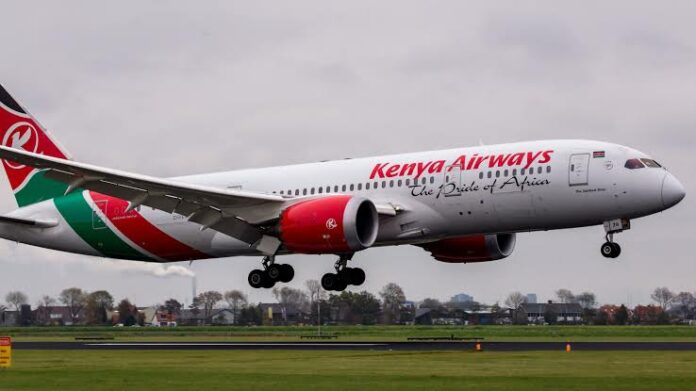I refuse to succumb to the predictions of doomsday prophets; who predict that Kenyan society has reached the limits of its elasticity and is about to snap. I refuse to entertain fear mongers who prophesy a revolution in the offing akin to the Arab spring.
Kenyans are a resilient lot, the envy of their neighbours who have gone down the slippery slope of internecine strife and come away much the worse for wear.
Naysayers cannot airbrush from the national psyche the ability to smile in adversity; or the readiness to step up to the plate when it is called for. This is the attitude that best describes the national carrier Kenya Airways (KQ).
Nobody can deny that the airline has taken a massive beating over the past decade. But in all that, the ready smiles and unaffected warmth of the crew have ensured the loyalty of passengers and melted the hearts of even the most hardened skeptics.
KQ is turning around. It reported an operating profit of close to Ksh one billion for the first time this year after more than half a decade of losses. It has registered impressive figures in virtually all metrics of performance.
The board and management have publicly outlined the way forward for the airline in an operation named Kifaru 2 after the resounding success of the first phase. However, challenges remain.
Top of the list is challenges precipitated by the 2020 pandemic. The most obvious is the closure of global airspaces to all passenger traffic. As a result, Kenya Airways planes were grounded for more than a year resulting in a huge loss of revenue. Second, and perhaps less overt, is the service parts supply chain issue that continues to persist to date.
Planes require crucial service parts that are mostly made of titanium. During the pandemic, a lot of companies that manufacture these parts either retrenched their workforce or scaled down because of natural attrition. Most of these companies have not reverted to their pre-pandemic output levels.
Related to this is the Russia-Ukraine conflict. Ukraine has 20 per cent of the recorded world reserves of titanium ores. That it is involved in a drawn-out conflict with Russia constrains its contribution to the global aircraft parts supply chain with inimical effects on airlines around the world.
This is the reason behind KQ’s occasional flight delays and cancellations. A year ago, these disruptions were rather frequent. However with the signing of an agreement with Lufthansa Technik for total component support, these disruptions have been kept to a minimum.
But getting into what is arguably the busiest travel season of the year, challenges still abound. KQ has issued a statement warning that there may be occasional disruptions resulting from anticipated delays in the return to service of some planes.
Kenya Airways staff named ‘Best Airline Staff in Africa’
No doubt, these disruptions, if ever they occur, would put a damper on the spirits of those travelling for Christmas. But they can be ameliorated by the KQ crew working collectively to ensure minimum inconvenience to passengers as they have done for pretty much most of the year. One way of doing this is in the enhancement of productivity of the flight deck crew.
Anecdotal evidence reveals that KQ has about 400 pilots who, on average, work between 60 to 65 hours every month. This is because of the constraints of a Collective Bargaining Agreement (CBA). Legally, commercial airlines go up to 105 hours monthly.
The datum line for pilot productivity starts at 70 hours. Because of the aforementioned supply chain constraints, it behoves KQ to maximize utilization of the planes that are in service by minimizing time on the ground. This can only happen when the flight deck crew are willing to go beyond the limits imposed by the onerous CBA.
In the spirit of our nation’s founding fathers, celebrated every 12th day of December, this then is an appeal to the patriotism of the flight deck crew. They have done us proud by working extremely hard to ensure the impressive turnaround results posted this year.
They can take it a notch higher by maintaining the same tempo for the two or so weeks that KQ management says will be adequate in resolving current supply chain issues.
Kifaru 2, as detailed by KQ’s management, will augment the national carrier’s fleet and put a permanent end to disruptions caused by delays in planes returning to service.
Meanwhile, concerted effort on the part of all KQ employees is called for. Success depends on all hands on the deck, literally and figuratively!











